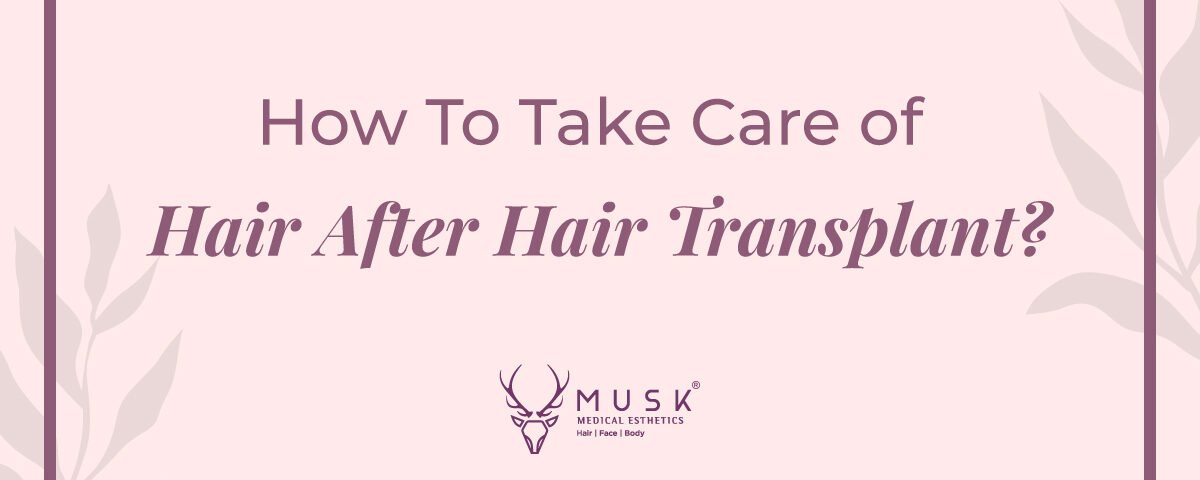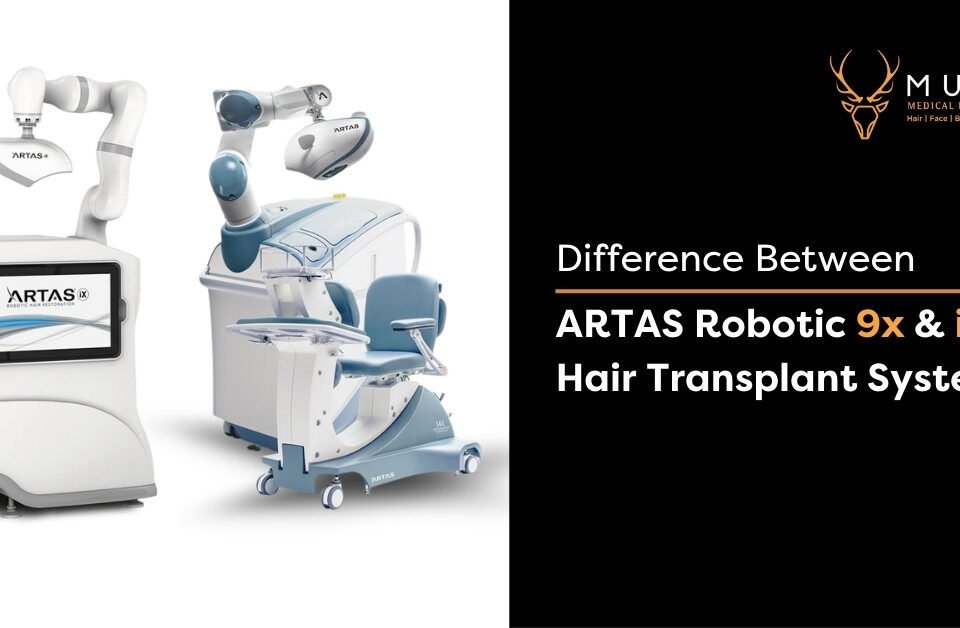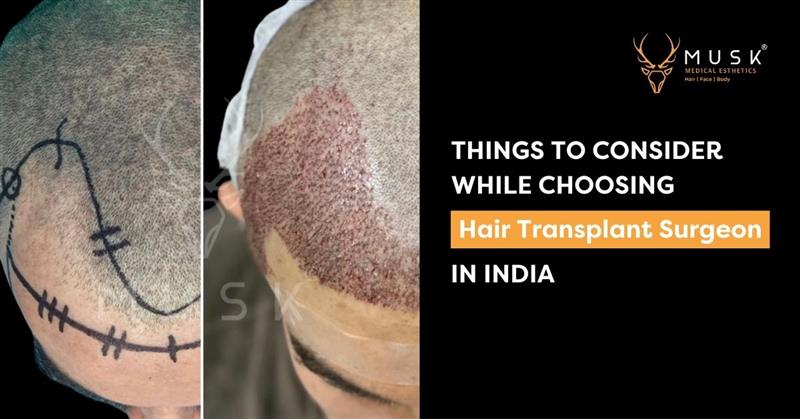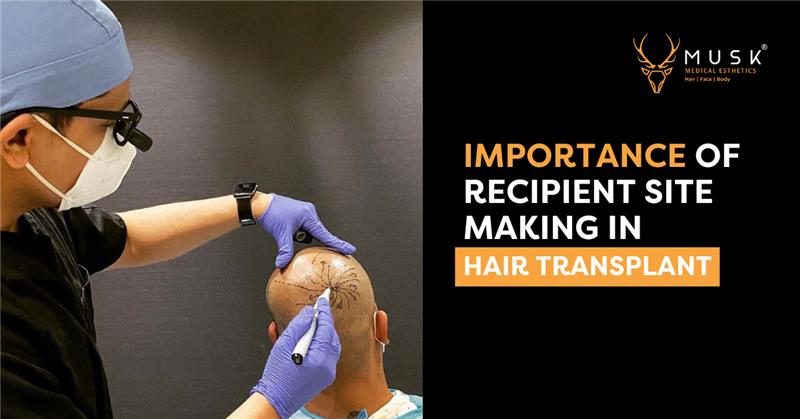How To Take Care of Hair After A Hair Transplant? – An Informative Guide

Don’t you think that after hair transplantation, all of your hair requires a little extra care?
You must take care of your hair after transplantation in the same way that you would your skin. The best thing you can do for your hair and its healing is to establish a healthy and effective hair care routine.
But wait, there’s more.
To begin, it is critical to understand that transplantation is a surgical procedure that necessitates a great deal of nuance and comprehensive care of the operated area because this is the only way to determine the overall outcome of the procedure.
If you are considering or have already decided on transplantation, this article will provide you with a brief overview of what you need to know.
Who Should Opt for Hair Transplant?
Androgenetic alopecia, also known as pattern baldness, affects both men and women. If your scalp has a well-defined pattern of baldness over the crown area with a healthy coverage of hair on the side and back of the head, hair transplant surgery is most likely an option.
One who can go for the procedure: –
- Men suffering from male pattern hair loss.
- Women suffering from hair loss and thinning hair
- A person who has been burned or has suffered a scalp injury.
- Another hair condition that is treatable with a hair transplant.
Pre-Operative Instructions:
- The doctor recommends that you massage your scalp one month before surgery. It is entirely dependent on the individual situation.
- It is recommended that the patient refrains from consuming any alcoholic beverages three hours before the surgery.
- If you decide to have a hair transplantation, you must stop smoking immediately.
- It is critical to avoid smoking once you have decided to undergo hair transplantation.
- Take your prescribed medication on the day of surgery without fail, as it contains an antibiotic that reduces the bacterial load.
- It is best to avoid drinks containing vitamins and multivitamins.
Tips For Post-Hair Transplant Care: –
Transplant surgery is very popular due to the short recovery period and ease of recovery. However, there are a few things you should be aware of regarding hair transplant recovery.
1. Wound Care: –
Allow your head to ventilate freely and avoid anything that may obstruct the path of air. After surgery, live a relaxed lifestyle and avoid strenuous activity for at least three weeks. Any medication that has the potential to impair blood circulation should be avoided.
2. Medication: –
After the surgery, your surgeon will prescribe you medications to help prevent infections and ease your recovery period. He or she may also recommend medication to aid in the growth of your transplanted hair and prevent future hair loss.
3. Folliculitis: –
Folliculitis is a pimple-like wound caused by ingrown hair. If you are experiencing the same symptoms, apply a warm, moist cloth to the affected area three times per day.
4. Maintain Moisture in the Newly Grafted Area: –
It is critical to keep the area moist after surgery, which often includes misting the hair with a saline solution or an ointment prescribed by your surgeon.
5. Sleeping Semi-Upright: –
If you have recently had hair transplant surgery, it is recommended that you sleep in a semi-upright position or in a recliner position with an upright angle for 48 hours after the surgery.
6. Avoid Strenuous Exercise After Hair Transplant Surgery: –
Restriction of heavy physical exercise for 7-10 days as it helps to reduce pain and swelling, but non-aerobic exercises such as walking and stretching can be done.
Hair Transplant Recovery Timeline
Two of the most frequently asked questions are about the recovery time and the results of a hair transplant. For example, you might want to know how long you’ll need to take off work or how long it will take to make a decision.
The individual patient and his or her circumstances determine the length of recovery. It should take about two weeks to recover from a hair transplant. Returning to work and normal daily activities after surgery follows the same timetable. During the recovery period after hair transplantation, you should avoid strenuous activities. Patients must wait for the full 12 to 18 months for hair regrowth before they can properly evaluate the results.
The following is a timeline for hair transplant recovery: –
1. 2-3 Weeks
The Period of Healing
Two to three weeks after FUE hair transplantation, newly transplanted hairs fall out. Swimming, drinking alcohol, smoking, strenuous sports, and other activities should be avoided during this time because they may jeopardize the post-hair transplant recovery period.
It is also critical to keep your scalp moistened with saline sprays on a regular basis during this time. Comb your hair carefully while it is still wet to avoid bleeding or irritation.
2. 2-3 Months
Rest and Recuperation are Essential
The transplanted hair is currently in a normal resting phase. At this point, the FUE patient looks the same as before the procedure, and the pain and swelling that occurred after the transplant should have subsided.
3. 4 Month Recovery
The Hair has been Restored and is Growing Naturally: –
After four months, you should notice new hair growing from the transplanted follicle. Hair growth may begin earlier in some patients due to differences in healing time and experience. The first natural hair growth will appear 2 to 3 months after the procedure, but it will be patchy and uneven because all follicles begin to work at different times.
4. 8-10 Months: –
The Final Month
The patient follows the recognizable development from the operation to this point between the 8th and 10th month. The hair will now grow and develop naturally throughout life and can be cut and shaped as desired. For hair care, nothing special is advised. Simple shampoos and hair care products are adequate.
Advanced Hair Transplantation Technology: –
-
ARTAX 9X Robotic Hair Transplant: –
Founded in California with the help of the world’s top hair restoration surgeons. The ARTAS 9X Robotic Hair Transplant System is one of the world’s most widely used technologies today. It is becoming a game changer in FUE hair restoration techniques as the only FDA-approved, doctor-controlled, computer-assisted technology in India.
-
FUE Hair Transplantation: –
Follicular unit transplantation is a technique that transplants hair from the patient in naturally occurring clusters of one to four hairs. When surgeons use naturally occurring groups of one, two, three, or four hairs known as follicular units to transplant thousands of grafts in a single session, the cosmetic impact of the treatment is maximized.
Gather The Above Points Together: –
Hair transplantation techniques have evolved over time. Aside from a few new methods, several others have emerged. However, certain precautions and instructions must be followed before and after surgery in order to achieve the desired outcome.
At Musk Clinic, we believe in scientific management and providing the best available care in a highly personalized manner by tailoring treatments to your specific needs. Choosing hair transplantation entails a lifetime commitment to caring for yourself and your new hair, and our team at Musk Clinic will be with you every step of the way.
For any further queries, you can reach out to us at Musk Clinic.
Read More:
Male Pattern Baldness: Causes, Stages, and Possible Treatments
Hair Transplant Journey: Hair Transplant After 3 Months – Results
Undergoing A Hair Transplant: Things To Consider
Everything You Need to Know About ARTAS Robotic Hair Transplant In India



